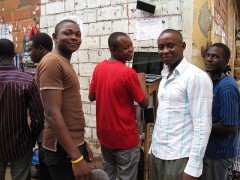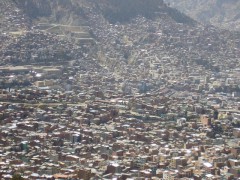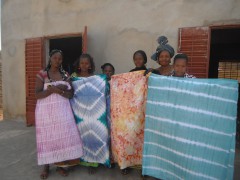-

Welcome (back) to Intipucá: economía de consumo y migración fallida en El Salvador
Written by vlemus
Abstract: Intipucá is a very small, dusty and hot town in rural El Salvador. However, it used to be one of the richest towns in the country. Said richness, however, depended not on its agricultural products (coffee, cotton, sugar cane), but solely on the money sent by the locals who […]
-

Nigeria: Hobbling the Entrepreneuerial Spirit
Written by Chioma Agwuegbo
In today’s economy, it is vital that young people learn to fish for themselves rather than wait to be handed fish by their guardians or society. Yet it is even better to be able to fish and sell for a profit on the open market. Why? Because young people can […]
-

Bolivia & Chile: Less Hot Air, More Gas
Written by Samuel George
You can’t win at the negotiation table what you lost on the battlefield. But you can sell gas to the people who beat you. On April 24, the International Court of Justice at The Hague heard the Plurinational State of Bolivia’s petition against Chile over the 250 miles of coastline that the […]
-

New Horizons: Malian Women move beyond the Home
Written by cmacias
In the conservative Muslim culture of Mali, women fulfill their traditional gender roles of raising children, tending the home and working on the family farm. However, increasing internal and external economic pressures are pushing them to find alternative means of income to supplement their household needs and even to reach […]
-

Coca-Cola: Globalization in the Modern Mayan World
Written by arzaba
We know we’re living in a globalized world when we realize we’re able to go to our local grocery store and find food from every continent or when our need for news can access any publication anywhere in the world in seconds. But you also know it when you find […]
-

In Travel We Trust: A Way of Life for Many Russians
Written by Masha Egupova
‘Where are you from?’ is the first question everyone asks you. It’s a question I can’t stand. Explaining my origins and identity takes a long time. Why? Well, I was born in Vladivostok, a small city in the far east of Russia. I’ve lived in Tel Aviv, Budapest, Cairo […]
